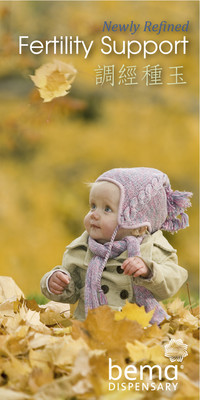(1).jpg)
.png)
Frequently Asked Questions
-
What are the recommended doses for the concentrated granules of single herb and base formula?
The recommended dose for each single herb varies, and the dose for each formula varies too. In Taiwan, the TCM doctors would use one or multiple base formula plus specific single herbs according to patient’s symptoms. They don’t use only just single herbs to make the prescriptions, because the base formula granule is produced by cooking all the herb ingredients together and there can be additional synergistic function among the herbs that make the formula more effective. In general, the daily dose prescribed range is from 9 – 12 grams per day.
The recommended general dosage for both formulas and single herb granules are listed on the SUNTEN formula book. For example: suggested daily dose for Jia Wei Xiao Yao San (Bupleurum & Peony Formula) is 12 grams per day, and for Huang Qin (Scute) is 0.4-1.8 grams daily.
-
What is the concentrated ratio of raw herb to final granule product?
Due to the nature of each herb and its plant parts that is used, the ratio of raw herbs to final granules varies from item to item. So it is inappropriate to claim all items have same raw herb ratio to final granules.
-
Are the certificates of analysis of each herb available to practitioners on request and where are these certificates kept?
The signed copy of certificate of analysis (COA) provided by SUNTEN are well kept with local distributor, which is BEMA.
SUNTEN's quality assurance department also keeps a copy together with all batch manufacturing records.
-
Does BEMA keep all copies certificate of analysis for each batch of every item in stock for sale?
Yes, all the Certificate of Analysis provided by Bema's suppliers are all well kept in the database for guarantee assurance management.
-
What forms of concentrated herbs work the best? Granules? Tablet? Capsule?
There is no major difference of the various forms of concentrated herbs in its effect. All different forms were further dispensed from the extracted granules.
Tablets and capsules are better for accommodating the demands from the market and the conveniences of patients.
Whether people would prefer take the herb prescription in granules, tablets or capsules simply based on personal choice with considerations such as conveniences of taking or carrying while traveling.
However, from some point of view, the granulated form might be comparatively the most efficient if absorption is the concern.
-
Are there any western drugs or chemical additives in the products?
No, there are no western drugs or artificial chemical additives in all Sun Ten's concentrated TCM granules.
-
Are the raw herbs used by SUNTEN for extraction been sulfured or not?
SUNTEN strictly enforces their raw herb supplier not to use sulfur dioxide gas (sulfur fumigate) for processing the herbs that SUNTEN purchased for manufacturing.
Especially for herbs that are commonly sulfer-fumigated to prevent contaminations from bacteria, such as Gou Ji, Shan Yao, Jin Yin Hua, Ju Hua, Fu Ling, etc.
The raw herb sourcing team of SUNTEN periodically inspects the cultivation site and analyze the samples to ensure they are fresh and not sulfur fumigated.
-
Where does SUNTEN do all the tests for assuring the herb quality?
All the basic testing such as heavy metals, microbiological test, etc. are conducted in SUNTEN's own lab.
SUNTEN has 15 highly qualified analytical technicians in their own QC (Quality Control) lab.
-
How does GMP get inspected in Sun Ten?
The Australia TGA will conduct foreign site GMP audit every 2-3 years according to PIC/s guideline (http://www.picscheme.org). The GMP audit from Japan is conducted through submission of documents and are reviewed according to their GMP guidelines(PIC/S). Taiwan authority conduct GMP audit annually and the audit is based on Taiwan Chinese herbal medicine GMP guidelines.
In addition to the external GMP audits from the above health authorities, Sun Ten also conduct their internal GMP audit every 6 months. There are internal and external GMP trainings for employees several times each year.
-
Where does SUNTEN purchase the raw herb materials?
The majorities of raw herb materials were purchased from China because more than 95% of TCM herbs are only available in China.
Sun Ten collaborates only with reliable herb suppliers that can prove the source of where they are grown.
In addition, Sun Ten has established a Raw Herbs Sourcing Team consisting of experts in chemistry, botany, and Chinese medicine to be able to constantly source high quality, authentic raw herbs to produce safe and high quality products that meets international standards.
-
How do I take my herb prescription in powder form?
Recommendations are made from different practitioners to their patients of how many grams to take daily.
Concentrated herbal powder is recommended best to be taken with luke warm water. Some practitioners recommend mixed powder and water together, and drink the mud-like liquids for best absorption.
Some people ingest the powder directly first, and then drink the appropriate amount of water they need afterwards.
.png)
